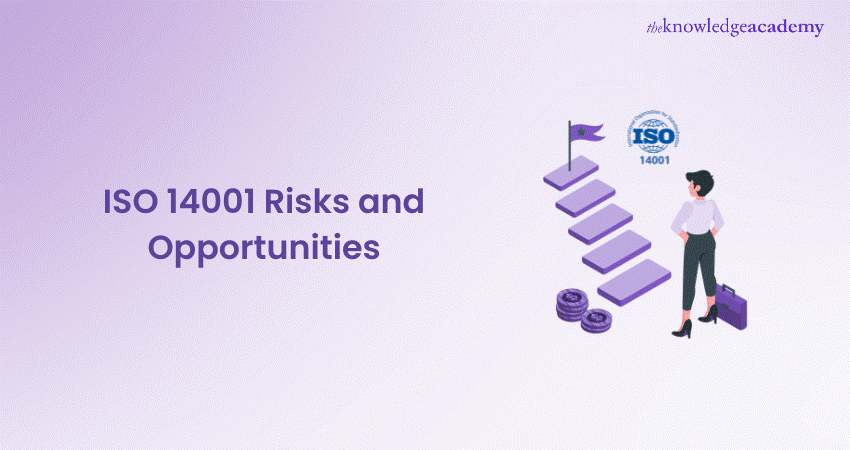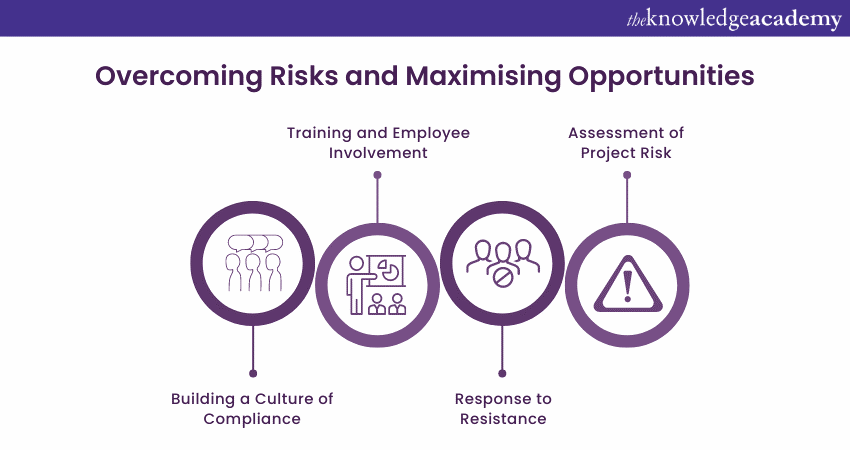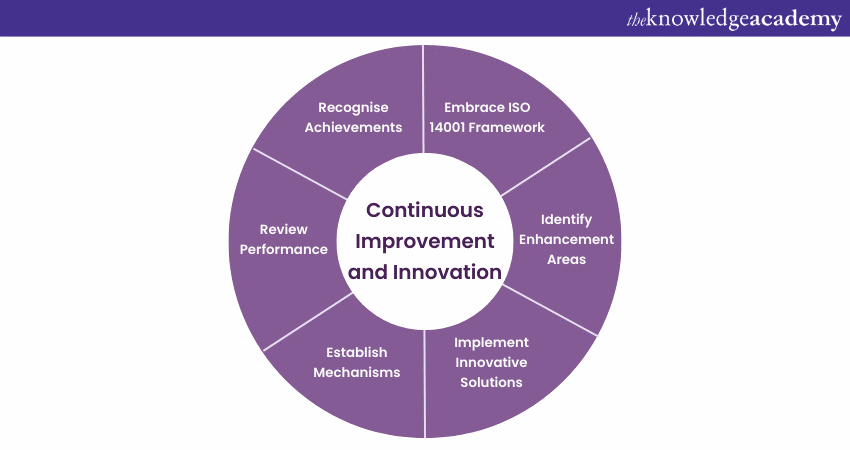We may not have the course you’re looking for. If you enquire or give us a call on +31 208081674 and speak to our training experts, we may still be able to help with your training requirements.
Training Outcomes Within Your Budget!
We ensure quality, budget-alignment, and timely delivery by our expert instructors.

Have you ever pondered the challenge of balancing environmental responsibilities with business growth? In today’s world, where sustainability is more than just a buzzword, organisations are turning to ISO 14001 to help navigate this crucial balance. But what are the ISO 14001 Risks and Opportunities that could either propel your business forward or hold it back?
In this blog, we’ll delve into the essentials of ISO 14001, exploring the key ISO 14001 Risks and Opportunities organisations face when implementing this standard. We’ll also highlight the real benefits, such as enhancing your environmental performance and gaining a competitive edge. If you’re ready to rethink how you manage environmental responsibilities.
Table of Contents
1) Understanding ISO 14001
2) Risks Associated with ISO 14001
3) Opportunities Offered by ISO 14001
4) Overcoming Risks and Maximising Opportunities
5) Conclusion
Understanding ISO 14001
ISO 14001, an internationally recognised standard, provides organisations ISO 14001 Context of the organisation with a framework for effective Environmental Management. It sets the criteria for an Environmental Management System (EMS), which helps organisations identify and control their Environmental Aspects and Impacts through the use of an Environmental Aspect and Impacts Register.
This standard helps organisations improve environmental performance by optimising resource use and reducing waste. ISO 14001 has been widely adopted worldwide since its release. A survey in 2017 showed a stable trend in companies implementing this standard. This reflects its global importance in promoting environmental sustainability.
Risks Associated with ISO 14001
While ISO 14001 offers numerous benefits, organisations must also be aware of the Risks arising during its implementation. By understanding these risks, organisations can take proactive measures to mitigate them effectively. The following are some of the common Risks associated with the ISO 14001 Standard:
Regulatory Non-compliance
One of the significant Risks organisations faces is the failure to comply with Environmental Regulations. Non-compliance can result in fines, legal penalties and reputational damage. Therefore, it is crucial for organisations to stay updated with evolving regulations and ensure their EMS addresses all relevant compliance requirements.
Inadequate Resource Allocation
Inadequate resource allocation can undermine the effectiveness of the Environmental Management System (EMS). It can also lead to gaps in compliance, hinder improvement initiatives, and hinder the organisation’s ability to achieve its environmental objectives. Therefore, organisations must allocate the necessary resources to support the successful implementation and maintenance of ISO 14001.
Lack of Management Commitment
When top-level management does not demonstrate a genuine commitment to Environmental Management, it can create a lack of direction and hinder the engagement of employees. Management commitment is essential to drive change, allocate resources, and foster a culture of environmental responsibility throughout the organisation.
Insufficient Employee Engagement
Lack of employee engagement can result in resistance to change, inadequate implementation of environmental practices, and missed opportunities for improvement. Therefore, organisations should implement effective document control measures under ISO 14001, including training and engagement initiatives to ensure employees understand their roles and actively contribute to the success of ISO 14001.
Ineffective Communication and Documentation
Inadequate communication of environmental policies, objectives, and procedures can lead to misunderstandings, inconsistent practices, and non-compliance. Similarly, insufficient documentation of processes and records can hinder the organisation's ability to monitor, measure, and improve its environmental performance. Thus, organisations must establish robust communication channels and maintain accurate documentation to support ISO 14001 implementation.
Elevate your auditing expertise with ISO 14001 Internal Auditor Training and drive sustainable practices within your organisation effectively!
Opportunities Offered by ISO 14001
Organisations that achieve ISO 14001 Compliance not only fulfill their environmental responsibilities, but also unlock a spectrum of growth and improvement opportunities. Embracing ISO 14001 enables organisations to tap into the following prospects:
Improved Evironmental Performance
ISO 14001 provides a structured framework for organisations to assess and improve their Environmental performance. By implementing the standard’s requirements, organisations can identify and manage their Environmental Aspects and impacts more effectively. As a result, they cannot only benefit the planet but can also lead to cost savings, operational efficiency, and enhanced reputation.
Enhanced Corporate Image
The 14001 Certification serves as credible proof of an organisation’s environmental responsibility. Therefore, it enhances its corporate image, positioning it as a socially responsible entity that cares about the environment and its stakeholders.
Access to New Markets and Business Opportunities
Many clients, both in the public and private sectors, prioritise working with environmentally responsible organisations. ISO 14001 Certification can serve as a differentiating factor when competing for contracts or attracting investors. By expanding their market reach, organisations can grow their business and tap into new revenue streams.
Cost Reduction and Efficiency
By optimising resource use, organisations can achieve cost savings and improve operational efficiency. For example, energy-saving initiatives, recycling programs, and improved waste management can reduce utility bills, lower material costs, and streamline processes.
Competitive Advantage
ISO 14001 Certification can enable organisations to meet customer expectations, comply with tender requirements, and access new markets. It can be a differentiating factor when competing for contracts or attracting investors. By positioning themselves as environmentally responsible, organisations can stand out from their competitors and obtain a competitive advantage.
Lead your organisation to environmental success with the ISO 14001 Lead Auditor Course – join now!
Overcoming Risks and Maximising Opportunities
Implementing ISO 14001 brings forth various Risks and Opportunities for organisations. To ensure successful implementation and reap maximum benefits, addressing these Risks effectively while capitalising on the Opportunities presented is crucial. So, let’s explore key strategies to overcome Risks and maximise Opportunities:

Building a Culture of Compliance
Risk: Non-compliance with Environmental Regulations and Standards can result in legal consequences, reputational damage, and financial penalties.
Solution:
a) Foster a culture of compliance by promoting environmental responsibility at all levels of the organisation.
b) Communicate the importance of adhering to environmental regulations.
c) Encourage employees to embrace their role in compliance.
d) Develop and implement robust processes and systems to examine and ensure compliance with applicable laws and standards.
e) Review and update procedures to stay current with evolving regulations.
Training and Employee Involvement
Risk: Lack of awareness and understanding of ISO 14001 requirements among employees can hinder successful implementation.
Solution:
a) Offer comprehensive training programs to educate employees about ISO 14001, its objectives, and their roles and responsibilities in the implementation process.
b) Emphasise the significance of their contribution to Environmental Management.
c) Encourage their active participation and involvement in identifying improvement opportunities and implementing sustainable practices.
d) Regularly communicate updates and successes to keep employees engaged and motivated.
Continuous Improvement and Innovation
Opportunity: ISO 14001 provides a framework for continuous improvement and drives innovation in Environmental Management.
Solution:

a) Embrace ISO 14001 as a catalyst for continuous improvement.
b) Encourage employees to identify areas for enhancement.
c) Implement innovative solutions that reduce Environmental Impacts and enhance efficiency.
d) Establish mechanisms to collect and analyse data on key environmental performance indicators.
e) Regularly review performance against objectives and targets, seeking opportunities for further improvement.
f) Recognise and celebrate achievements to reinforce the culture of continuous improvement.
Stakeholder engagement
Opportunity: Engaging stakeholders can unlock valuable opportunities for collaboration, knowledge sharing, and enhanced Environmental Performance.
Solution:
a) Identify key stakeholders such as suppliers, customers, local communities, and regulatory bodies.
b) Foster open lines of communication and collaboration to understand their concerns and expectations.
c) Involve stakeholders in decision-making processes related to Environmental Management.
d) Seek their input and consider their perspectives when developing strategies and initiatives.
f) Collaborate on joint projects, partnerships, and knowledge-sharing initiatives to leverage collective expertise and maximise Environmental Impact.
Kickstart your environmental management career with the ISO 14001 Foundation Certification - lay the groundwork for sustainability success!
Conclusion
Navigating ISO 14001 Risks and Opportunities goes beyond compliance—it's about transforming challenges into growth opportunities. By seizing these moments, you can drive efficiency, strengthen your environmental strategy, and position your organisation as a leader in sustainability. The journey to a greener future starts now!
Transform your environmental strategy with ISO 14001 Training, ensuring compliance while driving innovation and sustainability in your business!
Frequently Asked Questions

The intent of the phrase "enhance environmental performance" is to improve an organisation's impact on the environment. This involves reducing negative effects, increasing resource efficiency, and promoting sustainable practices.

Risks in ISO 14001 refer to potential negative impacts on an organisation's environmental objectives, such as regulatory non-compliance or environmental incidents. These risks can also include reputational damage.

The Knowledge Academy takes global learning to new heights, offering over 30,000 online courses across 490+ locations in 220 countries. This expansive reach ensures accessibility and convenience for learners worldwide.
Alongside our diverse Online Course Catalogue, encompassing 19 major categories, we go the extra mile by providing a plethora of free educational Online Resources like News updates, Blogs, videos, webinars, and interview questions. Tailoring learning experiences further, professionals can maximise value with customisable Course Bundles of TKA.

The Knowledge Academy’s Knowledge Pass, a prepaid voucher, adds another layer of flexibility, allowing course bookings over a 12-month period. Join us on a journey where education knows no bounds.

The Knowledge Academy offers various ISO 14001 Certification, including ISO 14001 Foundation Certification, ISO 14001 Lead Auditor Course, ISO 14001 Internal Auditor Training and ISO 14001 Lead Implementer Course. These courses cater to different skill levels, providing comprehensive insights into ISO.
Our ISO & Compliance Blogs cover a range of topics related to ISO, offering valuable resources, best practices, and industry insights. Whether you are a beginner or looking to advance your ISO & Compliance skills, The Knowledge Academy's diverse courses and informative blogs have got you covered.
Upcoming Health & Safety Resources Batches & Dates
Date
 ISO 14001 Foundation Certification
ISO 14001 Foundation Certification
Mon 7th Apr 2025
Mon 4th Aug 2025
Mon 3rd Nov 2025







 Top Rated Course
Top Rated Course



 If you wish to make any changes to your course, please
If you wish to make any changes to your course, please


